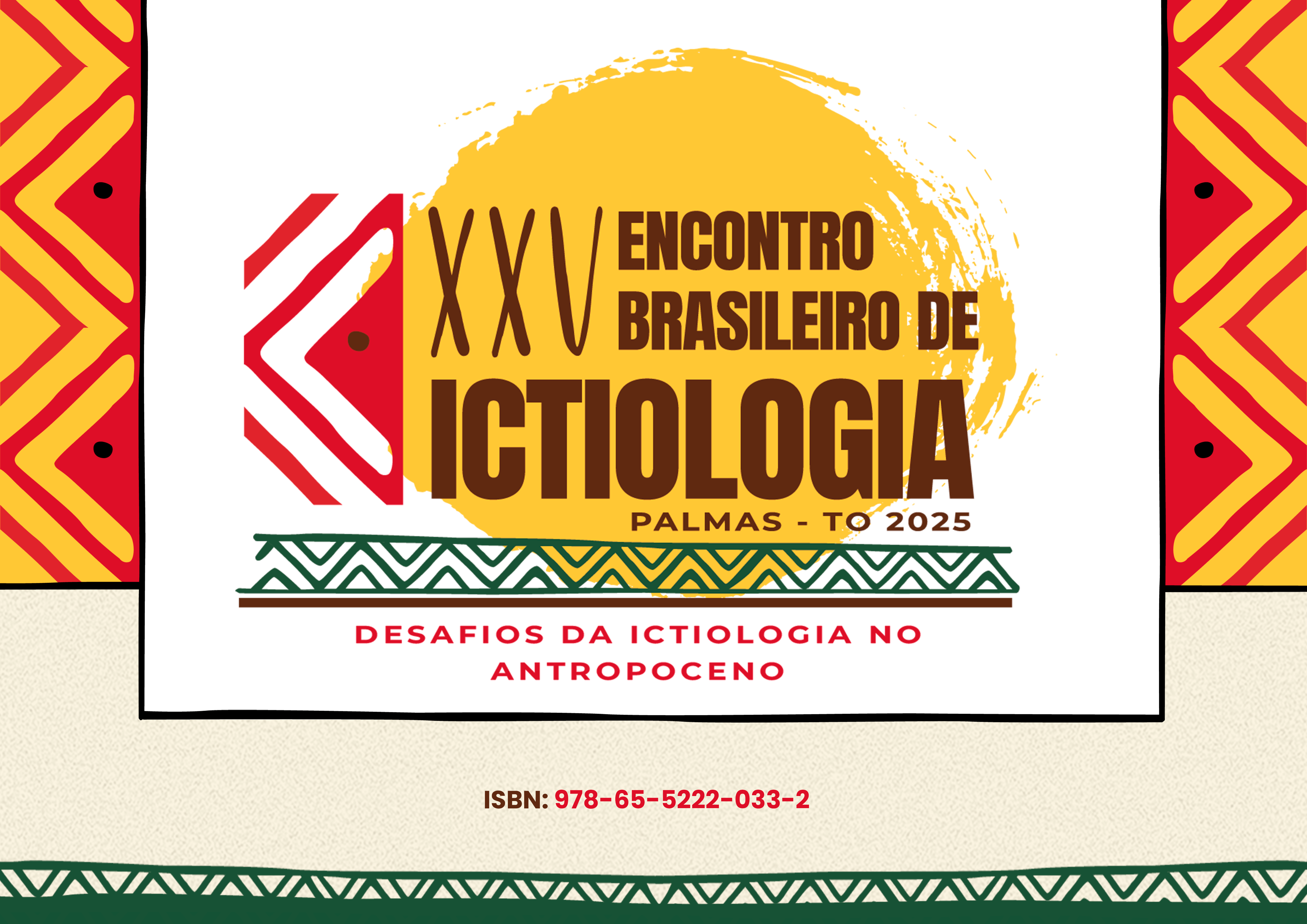THE FUNCTIONAL DIVERSITY OF FRESHWATER FISHES RESPONDS IN MULTIPLE WAYS TO HUMAN ACTIVITIES, BUT CONSISTENTLY DECLINES IN THE TROPICS
"2025-02-12 10:36:07" // app/Providers/../Base/Publico/Artigo/resources/show_includes/info_artigo.blade.php
App\Base\Administrativo\Model\Artigo {#1845 // app/Providers/../Base/Publico/Artigo/resources/show_includes/info_artigo.blade.php #connection: "mysql" +table: "artigo" #primaryKey: "id" #keyType: "int" +incrementing: true #with: [] #withCount: [] +preventsLazyLoading: false #perPage: 15 +exists: true +wasRecentlyCreated: false #escapeWhenCastingToString: false #attributes: array:35 [ "id" => 119683 "edicao_id" => 384 "trabalho_id" => 160 "inscrito_id" => 881 "titulo" => "THE FUNCTIONAL DIVERSITY OF FRESHWATER FISHES RESPONDS IN MULTIPLE WAYS TO HUMAN ACTIVITIES, BUT CONSISTENTLY DECLINES IN THE TROPICS" "resumo" => "Freshwater environments are intertwined with human activities and the consequence has been environmental degradation and biodiversity loss. Fish provide key ecological and economic benefits, and fish distribution can be affected by human activities resulting in functional diversity (FD) changes that might scale up to ecosystem impacts. Changes in FD can be expressed by quantifying its three main FD components temporally and/or spatially: richness, regularity, and divergence. There is no consensus about how human activities affect the main components of FD. In addition, human activities might affect the functional diversity of communities differently in temperate and tropical regions because of their differences in the regional pool of species and functional traits. Here, using a meta-analytical approach, we assess how different human activities (e.g. deforestation, invasion, reservoirs) in freshwater systems affect FD components in fish communities. We compiled information from 2012 to 2023, and we found highly idiosyncratic patterns globally, but consistent loss of functional richness and regularity in face of human activities in the Tropics. This idiosyncrasy could be related to high environmental heterogeneity or the multiple ways in which communities can be affected by human activities. The reduction of functional richness is concerning since human activities are removing specific functions from natural environments and it is enhancing the dominance of traits related to generalist ecological strategies. We highlight the importance of understanding the environment and fauna at the local scale, and the mechanisms by which each activity might affect FD." "modalidade" => "Comunicação Oral (CO)" "area_tematica" => "AT 01 - Ecologia e Conservação" "palavra_chave" => ", , , , " "idioma" => "Português" "arquivo" => "TRABALHO__EV205_MD1_ID881_TB160_24092024103654.pdf" "created_at" => "2025-02-13 11:08:16" "updated_at" => null "ativo" => 1 "autor_nome" => "ROMULLO GUIMARÃES DE SÁ FERREIRA LIMA" "autor_nome_curto" => "Romullo Lima" "autor_email" => "romullo.lima.01@gmail.com" "autor_ies" => "UNIVERSIDADE FEDERAL DO RIO DE JANEIRO (UFRJ)" "autor_imagem" => "" "edicao_url" => "anais-do-ebi---encontro-brasileiro-de-ictiologia" "edicao_nome" => "Anais do EBI - Encontro Brasileiro de Ictiologia" "edicao_evento" => "XXV ENCONTRO BRASILEIRO DE ICTIOLOGIA" "edicao_ano" => 2025 "edicao_pasta" => "anais/ebi/2025" "edicao_logo" => null "edicao_capa" => "67b49e4d8c758_18022025115053.png" "data_publicacao" => null "edicao_publicada_em" => "2025-02-12 10:36:07" "publicacao_id" => 116 "publicacao_nome" => "Revista EBI" "publicacao_codigo" => "978-65-5222-033-2" "tipo_codigo_id" => 2 "tipo_codigo_nome" => "ISBN" "tipo_publicacao_id" => 1 "tipo_publicacao_nome" => "ANAIS de Evento" ] #original: array:35 [ "id" => 119683 "edicao_id" => 384 "trabalho_id" => 160 "inscrito_id" => 881 "titulo" => "THE FUNCTIONAL DIVERSITY OF FRESHWATER FISHES RESPONDS IN MULTIPLE WAYS TO HUMAN ACTIVITIES, BUT CONSISTENTLY DECLINES IN THE TROPICS" "resumo" => "Freshwater environments are intertwined with human activities and the consequence has been environmental degradation and biodiversity loss. Fish provide key ecological and economic benefits, and fish distribution can be affected by human activities resulting in functional diversity (FD) changes that might scale up to ecosystem impacts. Changes in FD can be expressed by quantifying its three main FD components temporally and/or spatially: richness, regularity, and divergence. There is no consensus about how human activities affect the main components of FD. In addition, human activities might affect the functional diversity of communities differently in temperate and tropical regions because of their differences in the regional pool of species and functional traits. Here, using a meta-analytical approach, we assess how different human activities (e.g. deforestation, invasion, reservoirs) in freshwater systems affect FD components in fish communities. We compiled information from 2012 to 2023, and we found highly idiosyncratic patterns globally, but consistent loss of functional richness and regularity in face of human activities in the Tropics. This idiosyncrasy could be related to high environmental heterogeneity or the multiple ways in which communities can be affected by human activities. The reduction of functional richness is concerning since human activities are removing specific functions from natural environments and it is enhancing the dominance of traits related to generalist ecological strategies. We highlight the importance of understanding the environment and fauna at the local scale, and the mechanisms by which each activity might affect FD." "modalidade" => "Comunicação Oral (CO)" "area_tematica" => "AT 01 - Ecologia e Conservação" "palavra_chave" => ", , , , " "idioma" => "Português" "arquivo" => "TRABALHO__EV205_MD1_ID881_TB160_24092024103654.pdf" "created_at" => "2025-02-13 11:08:16" "updated_at" => null "ativo" => 1 "autor_nome" => "ROMULLO GUIMARÃES DE SÁ FERREIRA LIMA" "autor_nome_curto" => "Romullo Lima" "autor_email" => "romullo.lima.01@gmail.com" "autor_ies" => "UNIVERSIDADE FEDERAL DO RIO DE JANEIRO (UFRJ)" "autor_imagem" => "" "edicao_url" => "anais-do-ebi---encontro-brasileiro-de-ictiologia" "edicao_nome" => "Anais do EBI - Encontro Brasileiro de Ictiologia" "edicao_evento" => "XXV ENCONTRO BRASILEIRO DE ICTIOLOGIA" "edicao_ano" => 2025 "edicao_pasta" => "anais/ebi/2025" "edicao_logo" => null "edicao_capa" => "67b49e4d8c758_18022025115053.png" "data_publicacao" => null "edicao_publicada_em" => "2025-02-12 10:36:07" "publicacao_id" => 116 "publicacao_nome" => "Revista EBI" "publicacao_codigo" => "978-65-5222-033-2" "tipo_codigo_id" => 2 "tipo_codigo_nome" => "ISBN" "tipo_publicacao_id" => 1 "tipo_publicacao_nome" => "ANAIS de Evento" ] #changes: [] #casts: array:14 [ "id" => "integer" "edicao_id" => "integer" "trabalho_id" => "integer" "inscrito_id" => "integer" "titulo" => "string" "resumo" => "string" "modalidade" => "string" "area_tematica" => "string" "palavra_chave" => "string" "idioma" => "string" "arquivo" => "string" "created_at" => "datetime" "updated_at" => "datetime" "ativo" => "boolean" ] #classCastCache: [] #attributeCastCache: [] #dates: [] #dateFormat: null #appends: [] #dispatchesEvents: [] #observables: [] #relations: [] #touches: [] +timestamps: false #hidden: [] #visible: [] +fillable: array:13 [ 0 => "edicao_id" 1 => "trabalho_id" 2 => "inscrito_id" 3 => "titulo" 4 => "resumo" 5 => "modalidade" 6 => "area_tematica" 7 => "palavra_chave" 8 => "idioma" 9 => "arquivo" 10 => "created_at" 11 => "updated_at" 12 => "ativo" ] #guarded: array:1 [ 0 => "*" ] }



